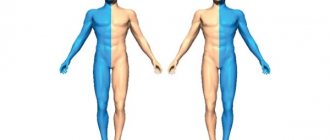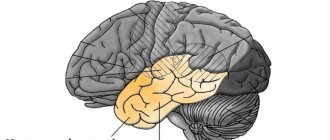With some illnesses and mental disorders, a person develops derealization . This is the name for a violation of the perception of the surrounding world, in which it seems devoid of its usual qualities, distant, alien, without colors. Often this pathology is accompanied by depersonalization – a distortion of a person’s self-perception. To get rid of it, psychiatrists at the Moscow mental health center “Leto” use both medications and psychotherapeutic agents.
How does derealization manifest itself?
There is a persistent feeling of the unreality of what is happening, that everything familiar and ordinary has become unnatural, alien. Fantastic changes are palpable, but none of the patients can explain how such a transformation occurred. And they also fail to clearly formulate what changes have occurred. Statements on this matter lack specificity. When describing their feelings and experiences, people use the words “as if,” “most likely,” “possibly.” It seems that patients are making guesses rather than stating anything definite.
A person sees reality as if in a dream or through a cloudy glass. When the symptoms are severe, he loses his sense of reality. For example, a patient in this condition will not say what he ate for breakfast. It is difficult for him to remember his usual route from home to work, and it is easy for him to get lost on a well-known street or in a public building. The patient may lose track of time. There are cases when the feeling of unreality turns into an aggravated state and people even cease to feel their existence in the world.
Symptoms of derealization:
- The surrounding world is perceived “through the fog” or as a dream;
- Orientation in time and space is disturbed. Sensations, sounds, and sizes of surrounding objects are distorted;
- Trust in current events disappears;
- There is a fear of going crazy. Constantly haunted by a feeling of “déjà vu”;
- The sense of reality completely disappears (severe course of the syndrome).
A similar condition can be observed even in mentally healthy people who experience severe overwork, systematic lack of sleep and constant stress. The psychotic nature of this syndrome is often combined with depression, various neuroses and is accompanied by panic attacks.
Signs and symptoms
To identify the presence of a disorder, you will need the ability to analyze existing symptoms and signs. Therefore, the doctor carefully studies the patient’s history, his complaints, stories of loved ones, pays attention to each deviation, evaluates its development over time, the dynamics of the process.
Derealization is inherent in:
- A feeling of detachment from the outside world.
- The alienness of the events happening around.
- Feeling of a dim, clouded, unnatural reality .
- Seeing the outlines of objects as in a film on the screen. Everything happens as if through a glass darkly.
- Decreased concentration.
- Difficulty or impossibility of performing even the most simple actions: opening a door, taking a book from a table, turning on a lamp, etc.
- Loss of perception of color and volume of objects. Everything seems fuzzy, unsharp, blurry, with lost contours.
- Inability to estimate distances to objects.
- Distortion of sounds. They are heard either quiet or loud, with an echo, in different shades.
- A shift in the sense of time , which either stretches or accelerates. A number of patients report complete temporary freezing.
The most severe forms of the disorder are accompanied by partial or complete amnesia, lack of emotions, and repeated experiences of a traumatic situation. In some cases, an attack of derealization develops suddenly. The patient “falls” into a state reminiscent of half-sleep, a scene from a movie. Unknown events, persons and places are perceived as already seen. Well-known people, objects, streets seem new. Often, when examining people with mental illness, doctors detect concomitant depersonalization.
It is characterized by:
- The feeling of the body dissolving in space.
- Perception of oneself in merging with air, fog, rain.
- Vision of other people in the form of soulless shells, mechanisms, mannequins.
- Loss of self-awareness.
With severe derealization, complications are possible:
- Phobic syndrome. After attacks, patients begin to experience fears of repetition of derealization episodes. Patients feel that they have brain damage and an incurable mental illness. Clients are afraid of going crazy, suddenly losing consciousness, or dying.
- Depression. Fears give rise to depression, and the body tries to somehow “soften” the feelings of depression. Although, of course, it’s hard to call this symptom a compensatory-protective mechanism.
Constant derealization is, as a rule, of a milder nature.
Causes of derealization and depersonalization
In modern society, people are subject to negative influences. Interpersonal conflicts and increased emotional and physical stress occur. It is necessary to withstand the busy rhythm of life. Depersonalization may occur with VSD.
The cause of the syndrome is most often associated with deprivation. Suppression, over a long period of time, of a large number of conscious and unconscious needs and desires, awareness of one’s real capabilities, which are not enough to achieve one’s goals, unsuccessful attempts to achieve success in one or another area of life.
Click to enlarge
Subsequently, the perception of the surrounding world or oneself may be disrupted. Thus, the body turns on a protective mechanism, where derealization acts as a pain reliever, reducing the consequences of emotional shock. For this reason, the largest category of patients includes people who do not recognize the possibility of error, avoid ambiguity and uncertainty, and strive to achieve perfection in everything.
We recommend reading: Burning sensation in the chest with VSD
This is a common reaction of a mentally healthy person. It helps maintain reasonable behavior during emotional turmoil. In times of danger, it is important to step back from what is happening in order to maintain the ability to act effectively. But for a person with VSD and derealization, even a banal everyday situation can cause anxiety and stress. At the same time, he begins to analyze his condition, looking for any deviations, as well as the reasons that caused them. A negative assessment of what is happening further aggravates the situation and leads to a depressive state.
Derealization in VSD is not a mental illness or psychosis. There are no hallucinations, the person understands that his condition is abnormal, unlike a madman who can rarely realize this. Sometimes, a patient with VSD even claims that he has gone crazy or defines his condition as borderline.
Thus, several main causes of this syndrome can be identified:
- Extreme stress;
- Depression;
- Traumatic situation;
- Use of psychotropic drugs.
Most often, the syndrome develops under the influence of prolonged, severe stress. Exhaustion of the nervous system causes a decrease in sensitivity as a protective mechanism. Then the individual unconsciously creates a distorted perception of reality.
Factors that provoke the development of derealization may be psychophysiological in nature. These include:
- Learning problems;
- Difficulties in professional activities;
- Difficult relationships with other people;
- Bad ecology;
- Lack of minimal comfort, for example, constant travel in crowded transport, poor living conditions.
The causes of derealization include somatic disorders:
- Osteochondrosis, especially of the cervical region;
- Muscle hypertonicity;
- Some mental disorders;
- Vegetovascular dystonia.
Among the causes of the syndrome, drug addiction and alcoholism can be particularly noted. A state of intoxication caused by drugs or alcohol can turn into derealization. Overdoses of certain drugs cause a feeling of fantastic or distorted space, an incorrect perception of oneself, which is accompanied by numbness of the limbs, the appearance of peculiar visual images, etc. Alcoholic delirium (delirium tremens) is almost always complicated by derealization syndrome and hallucinations.
So, we can identify several main risk factors that contribute to the development of derealization:
- Characteristics that make it difficult for a person to adapt to difficult circumstances;
- Hormonal changes, especially during puberty;
- Drug use;
- Psychical deviations;
- Some somatic disorders.
We recommend reading: A complex of therapeutic exercises at home.
Any manifestations of this syndrome cannot be ignored. Regardless of the degree of its development, you need to seek help from a specialist. The sooner this is done, the less time the treatment will take.
Why do derealization and depersonalization occur?
This problem has not yet been fully studied. And therefore it is impossible to answer this question with certainty. However, there are scientific theories that try to explain this phenomenon.
Personally, I am a supporter of the theory that derealization is a defense mechanism of our psyche. The whole irony of such an illness as panic attacks is that those symptoms that people consider dangerous to their lives are, in fact, designed to save that life in the event of a mortal threat. I'm talking about the symptoms of increased heart rate, rapid breathing, feelings of fear and panic (which are triggered by adrenaline surges). As I described in the article, the symptoms of a panic attack are all defense mechanisms of our body.
And derealization is also the same protective function.
One Western study found that on average 50% of people exposed to a traumatic event experience symptoms of derealization. Surely you have heard stories of people who found themselves in dangerous, stressful situations and described their experience as: “It seemed to me that this was not happening to me,” “It was as if it was in a dream.”
These are the symptoms of derealization. During moments of stressful events, our psyche seems to “close itself” from potentially traumatic experiences. And therefore it seems to us that what is happening is like a dream, that this is not happening to us. And here we can draw the following conclusion:
Derealization and depersonalization are not dangerous in themselves. These are simply defense mechanisms of our psyche, which strives to “close itself” from unpleasant experiences.
And you can get rid of this condition. I'll tell you how later.
Treatment of derealization
Click to enlarge
The treatment of derealization is carried out not by psychiatrists, but by psychologists and psychotherapists, since it is not a disease, but a pathological condition. Prescription of antidepressants, antipsychotics and tranquilizers is common. Sometimes doctors prescribe nootropics. It is believed that anti-anxiety medications may reduce some of the symptoms of this syndrome.
It is possible to select the necessary treatment only by taking into account the psychological characteristics of a person and his general condition. Modern methods of psychotherapy are aimed at eliminating all symptoms using various modeling psychological methods, psychotherapeutic recovery methods, and hypnosis techniques. Synchronization and sensory modeling, color treatment and cognitive therapy are also successfully used.
Positive results can be obtained by improving the patient’s usual living conditions, normalizing the daily routine, changing jobs, and practicing various types of recreation.
In the future, to prevent relapse of the abnormal condition, preventive measures will be of great importance. You should periodically change your usual conditions and environment, try to fill your life with new impressions, and focus only on the positive aspects of what is happening.
Individual therapy is prescribed by a doctor after solving the following problems:
- Identification of factors that caused the syndrome.
- Analysis of the patient’s condition taking into account individual symptoms.
- Conducting testing.
Experience has shown that derealization is difficult to treat with medications and often aggravates the problem rather than solving it. The reason that caused the mental disorder cannot be eliminated only with the help of medications, since many psychological aspects are not taken into account during drug treatment. There is often resistance to the treatment of this disease with pharmacological agents in NCD. Getting rid of symptoms in itself does not make any sense. Only by influencing the causative factor can this problem be completely solved. By following these recommendations, you can change the situation for the better:
- Quitting alcohol;
- Systematic physical education and sports. Fitness and yoga are very suitable;
- Recreation, including active recreation;
- Auto-trainings;
- Normal sleep;
- Taking vitamin complexes, especially those containing calcium and magnesium;
- Psychotherapy;
- Meditation;
- Water treatments, various relaxation methods.
The best cure for derealization and VSD are positive emotions. Getting them when the nervous system fails is not an easy task. But it is possible to influence the attack itself and try to reduce its intensity using the following recommendations:
- Try to relax, normalize your breathing;
- Remember that the distortion of reality is only a temporary, passing reaction that has nothing to do with madness;
- Try to focus attention on one subject, but do not try to consider the nuances, as this can lead to additional stress;
- Focus on a specific thought about everyday things. Therefore, it is important to find the cause of the disorder during a psychotherapy session.
We recommend reading: Is it possible to play sports with VSD?
In similar ways, it is indeed possible to cope with attacks. However, the state of derealization that autonomic dysfunction causes will still have a negative impact on the psyche and, thus, reduce the quality of life.
Diagnosis of derealization
If you feel as if you are drunk, but have not drunk alcohol for a long time, then this may be a reason to consult a doctor. On the Internet you can find tests to determine realization and depersonalization, but it is important not so much to detect the disorder as to identify its causes. This is extremely important, because such conditions can accompany schizophrenia and other serious mental pathologies. Only an experienced specialist can determine an accurate diagnosis.
Diagnostics will include the following steps:
- studying the medical history, talking with the patient. Among the diagnostic methods, the most important in this situation is a survey, but it is also important to comprehensively study the patient’s medical history. A history of previous mental disorders or severe somatic illnesses, as well as cases of derealization among family members of the patient, will allow a more accurate determination of the cause of this condition;
- visual examination of the patient;
- application of clinical scales developed for psychodiagnostics of derealization and depersonalization. The most famous scale is the Nuller test. At its core, this scale is a list of symptoms of the disorder, differing in the characteristics of their manifestation. If any of them was noticed in the patient, then a mark is placed opposite it. The specialist then counts the number of such symptoms and assesses the severity of the patient;
- use of other methods of psychological research;
- conducting clinical studies, including x-rays and pharmacological tests. All these measures can help identify somatic diseases that can lead to the development of derealization, as well as reduce the likelihood of developing side effects from drug treatment in the future.
The specificity of symptoms, as well as the duration of their observation, deserves special attention. If the attack of derealization was isolated and short-lived, then the cause should be sought in overwork or nervous shock. Otherwise, the disorder may indicate more serious pathological processes in the body.
The role of psychotherapy in the fight against derealization
Psychologists and psychotherapists can eliminate pathological mental attitudes that they can detect in an individual. The disorder may be associated with childhood trauma, severe emotions, or as a result of the loss of a loved one. The disorder can be caused by stressful situations at work, unfulfilled hopes, troubles in your personal life and other factors. Without working through the causes, it is impossible to talk about an exact favorable prognosis for treatment. In most cases, the use of cognitive behavioral therapy, Ericksonian hypnosis and other methods of psychotherapy can help.
Success in recovery is also determined by the participation of the patient himself. It is necessary to constantly monitor yourself in various circumstances, under various emotional stress. For progress in treatment, a person’s attitude towards derealization is important, whether he considers it terrible, incurable, or is determined to get rid of it quickly. A strong will and a firm desire to get rid of the disease are required.
A high quality of life is impossible without the presence of harmony and positive emotions in it. It is not necessary to cope with difficulties and bring joy with the help of antidepressants and tranquilizers. In life itself you can find a lot of reasons to smile and cheer yourself up.
Every person has sufficient resources to survive failures, continue to act, and be optimistic. The psychotherapist points out the peculiarities of the patient’s psyche, helps him apply healing practices that can protect his health and defeat derealization forever.
Also read with this article: Panic - causes, signs, symptoms, types, forms, treatment Table: 200+ drugs prescribed for the treatment of symptoms of VSD Treatment methods for vegetative-vascular dystonia 1 Consultations with specialists Entire section Depersonalization Entire section
An abnormal perception of the surrounding world and oneself, when everything seems unreal, and one’s own thoughts, emotions, sensations seem to be observed from the outside, is called depersonalization in psychiatry. Often it occurs along with derealization, characterized by the remoteness of everything around, the absence of colors in it, and memory impairment. Due to the similarity of symptoms, in the 10th revision of the International Classification of Diseases, depersonalization-derealization syndrome is designated by one code F 48.1.
Perception disorder affects more than 70% of people worldwide from time to time. It seems to them that their consciousness is divided into two parts and one of them, having lost control over their mind and body, panics, and the second indifferently watches this from the side. It's like a bad dream and therefore very frightening. A person sees everything in a fog, in muted colors, and cannot move either an arm or a leg. He feels extreme discomfort and feels like he is going crazy.
Experts do not consider this disorder a serious mental pathology. The human psyche can react this way to stress, fear, severe emotional shock, and even overwork in the physical sense. The brain “turns on” the defense, reducing a person’s sensory sensitivity and emotionality, so objects seem strange, unusual to the touch, and colors appear faded. That is, the perception of the world becomes unusual and strange, unfamiliar. This condition usually goes away on its own and quickly, without treatment.
But, if such a syndrome manifests itself frequently and lasts for a long time, and the symptoms intensify, then it is already dangerous: the individual can harm himself and others with his inappropriate behavior, or commit suicide. Therefore, in this case, the help of doctors is necessary.
You need to know that depersonalization can also accompany clinical depression, panic attacks, anxiety and bipolar disorders, and schizophrenia. Similar sensations are caused by narcotic drugs, sedatives and antihistamines and a number of other medications, as well as caffeine and alcohol.
How to get rid of derealization and depersonalization
Tip one - get out of the vicious circle of anxiety
As I already wrote, very often people (especially people with panic attacks and anxiety) begin to worry very acutely about their condition: inventing terrible diseases, fearing the harm that derealization can cause them.
First, I remind you that this condition is not dangerous. Secondly, as we remember, it is very often just one of the symptoms of anxiety. What does it mean? This means that when you start worrying about the symptoms of derealization, you provoke more anxiety or panic attacks, which in turn worsen the derealization!
So relax and try to let go of thoughts about your condition. If derealization has come, then it has come. You are already in “this boat”, so there is no point in worrying and stressing yourself out. Relax and try to accept this state. Don't resist or resist him. It's temporary. Just as it came, it will go.
You must strive for this, although it is difficult. People with chronic anxiety have such an anxious mind that they tend to worry constantly about everything. And when there is no reason, the mind finds one. And at first, it is very difficult to break this established habit and help yourself relax and stop worrying. However, it is possible. The following tips will partly address this problem.
Tip two - develop concentration
Psychologists give the following advice.
If you love to read, then you probably have a plan about what books to read in the future. (And if you don’t like it, it’s time to start) Personally, there are many books on my plan that are not very exciting, maybe even boring, but, nevertheless, I think that I need to read them. These could be books on history, science, or even fiction, serious, deep, but not exciting. Read books like this.
Try to keep your attention on the text (which will “slip”, since the text is not interesting) and return it every time you get distracted. This, firstly, will develop your concentration and certain areas of the brain, and secondly, it will allow you to be closer to the area of experience. After all, books, after all, stimulate your emotions, give birth to images in your imagination, helping you to be closer to yourself.
Causes of perception disorder
Depersonalization occurs in people of different ages and genders, but most often it affects young women. As already mentioned, it is caused by a stressful situation. The psyche that resists it reduces the strong emotional load of a person, switching his attention to outside observation. Thus, the individual turns his consciousness inward, his senses become dulled, but logical thinking remains the same.
The process of development of the syndrome in the body looks like this: under the influence of stress, a large amount of endorphins begins to be produced. As a result of their large-scale chaotic attack on receptors, the limbic system responsible for emotions is unable to cope with such pressure and is forced to partially shut down.
But the above mechanism can also be triggered by other physical factors:
- stroke;
- hypertension;
- brain tumor;
- neurological disease;
- head injury;
- epileptic seizure;
- neurosurgical operation;
- severe infectious disease in childhood;
- birth injury.
Very rarely, depersonalization is inherited or is a consequence of negative changes in the nervous system.
It has already been said that taking drugs or other intoxication of the body can also cause a disorder of perception, as this provokes increased production of “hormones of happiness” - endorphins. Therefore, in the United States, an organization on drug addiction issues is studying depersonalization at the state level.
It should be noted that in schizophrenia, split personality has other causes and this is a symptom of a serious mental disorder, the approach to which is special and requires complex treatment.
Symptoms
There are 3 conditional groups of signs characterizing depersonalization syndrome:
1. Emotional coldness, indifference in the perception of the surrounding world, detachment, indifference to people::
- indifference to the suffering of others;
- lack of joy when communicating with family and friends;
- insensitivity to music;
- loss of sense of humor;
- maintaining equanimity in situations that previously aroused any feelings, both negative and positive.
Fear is experienced only from the loss of control of one's body and loss of orientation in space. The feeling of confusion from not understanding the location, the history of getting here and further actions is depressing.
2. Violation of physical sensations:
- Loss of sensitivity to hot and cold;
- colors become dull, color blindness may appear;
- taste sensations change;
- objects seem blurry and have no boundaries;
- sounds seem muffled, as in water;
- There is no pain with minor wounds;
- coordination of movements is impaired;
- There is no feeling of hunger, and with it the appetite disappears.
3. Mental immunity:
- a person forgets his preferences - what he likes and dislikes;
- lack of incentives and motives - reluctance to take care of yourself, cook food, do laundry, work, go shopping;
- temporary disorientation - an individual can sit without doing anything for several hours and not understand how much time has passed;
- the feeling of participating as an actor in a boring, drawn-out play;
- contemplation from the outside of your life, as if it were a dream.
The main sign of a perception disorder is a person’s deep self-absorption. At first he realizes that he perceives his personality incorrectly, this depresses him and causes strong emotional disturbance.
When trying to understand what is happening, the feeling of unreality becomes stronger, and the absurdity of the situation forces the individual to avoid communication with other people. The individual, however, is aware of the painfulness of his condition.
In general, the clinical picture of depersonalization can be described as follows:
- The perception of the world is disrupted - it seems unreal, fantastic.
- Complete detachment from what is happening around.
- Loss of satisfaction from natural physiological needs - sleep, food, defects, sex, etc.
- Closedness.
- Impaired perception of the structure of one's body - arms and legs seem artificial, of unknown configuration or size.
- Inability to control your body.
- Decreased intellectual abilities.
- Feeling of loneliness, abandoned by everyone.
- Absence of any emotional manifestations.
- Changes in physiological sensations.
- Split personality.
- The feeling of watching yourself from the outside.
These symptoms of perceptual disorder may have varying degrees of severity for different types of depersonalization, which will be discussed below.
How to get rid of the feeling of unreality
Often, people with VSD mistakenly believe that self-medication with sedatives will eventually eliminate the problem. But the feeling of the unreality of what is happening is only a symptom, a “bell” of a deep problem lying at the bottom of the soul.
In general, almost all symptoms of VSD are treated according to the standard regimen. First, the patient must visit a psychotherapist who will identify the true cause of the illness. Then treatment will begin, which should be comprehensive. If necessary, the patient is prescribed certain medications. Habits, sleep and eating patterns are adjusted. The psychological state is restored.
Reality should bring joy - this is the first rule for a patient with derealization symptoms. Nature not only taught man how to respond to stress, but also gave him the resources to “repair” the soul.
Varieties
Modern psychology shares several forms of depersonalization syndrome, differing in the uniqueness of their perception of the world around them and themselves:
- Autopsychic depersonalization is a heightened sense of one’s “I”, an increase in the feeling of its loss. It seems to a person that some stranger lives in him, feels at ease and acts in his own way. Such a split makes you suffer and experience discomfort, and reject yourself. Social contacts are difficult.
- Allopsychic depersonalization – derealization. The surroundings are perceived as a dream, the world is seen as through a cloudy glass. Everything seems alien and hostile: sounds are booming, objects are fuzzy, people look the same. Automatic thoughts and movements, disorientation, deja vu.
- Anesthetic depersonalization - increased internal vulnerability with complete external insensitivity.
- Somatopsychic depersonalization, characterized by a pathological perception of one’s body and its functions. It is the most unusual: it seems to a person that he has no hair or clothes, parts of the body have changed and live their own separate lives. Eating is difficult - the throat “does not want” to push food through, there is no desire to eat. Taste sensations change, sensitivity to air and water temperature decreases.
Diagnostics
To identify a perceptual disorder, a thorough interview of the patient and his relatives is required - they will describe the patient’s behavior. Special testing is also carried out.
Blood tests and examination of the patient will not yield anything - he does not look sick, he has no chronic or hidden somatic diseases, his immunity is not satisfactory, and his physical condition is quite normal. But an MRI will show changes in certain areas of the brain. There are also special laboratory studies confirming changes in protein receptors and disturbances in the functioning of the endocrine gland - the pituitary gland.
Now there are clear criteria to confirm the diagnosis:
- Critical thinking of a patient who is aware of his problem.
- Maintaining clarity of consciousness, the absence of so-called twilight episodes, confusion of thought.
- Complaints that the mind exists separately from the body, the latter exists independently and its perception is impaired.
- A feeling of changing terrain, unreality, misrecognition of familiar objects.
The specialist should distinguish depersonalization from schizophrenia, which has similar symptoms. These pathologies are distinguished as follows: schizophrenia manifests itself with the same symptoms of the same intensity every day, and with a perceptual disorder they are much more varied.
What unreal thing is happening?
It is not only those who suffer from the feeling of unreality in an altered consciousness. The list will be replenished with both patients with mental illnesses and drug addicts, and the most ordinary people in a stressful situation. These are all tricks of human nature. Under the weight of great stress, it is necessary to “separate”, “break away” from surrounding objects and events, quickly come up with a plan of action and make the right decision. Sometimes life depends on it. Therefore, the human brain is endowed with the ability to turn off its usual vision of the world in order to concentrate on truly important things. VSDs, whose nervous system is usually heated to a critical degree, sooner or later encounter this. How can this feeling of unreality of what is happening manifest itself?
- Distorted perception of the surrounding picture: the world around may seem blurry or made of plastic. The perception of color, smell, time changes. The city can become like the virtual space of some computer game with impossibly bright colors or like the surface of the Moon, where everything is lifeless and dim. Sounds can be annoying or, on the contrary, muffled. The state is like in a dream. Psychotherapists call this feeling of the unreality of what is happening “derealization” (hence, in fact, the word “dereal” came into the dictionary of the VSD student).
- A distorted sense of self (in psychotherapeutic language, “depersonalization”). The patient may suddenly stop feeling his own body, and there is a feeling that you are looking at yourself from the outside. For a VSD sufferer suffering from hypochondria, it is especially difficult to feel such a symptom, because the fear immediately arises that “I am dying and my soul is separated from my body.” And, despite the fact that the arms and legs still work properly, the patient is not sure that his head controls the limbs. Another curious form of depersonalization: a person suddenly desperately tries to understand his own “I”. How can I think? Where did my soul come from? Why am I exactly me? Doubt arises about the reality of oneself, “maybe I don’t really exist”
Therapy for depersonalization disorder
Since this disorder is individual for each patient, treatment is selected for each patient separately.
As already mentioned, short-term cases of depersonalization do not require treatment, but psychoanalysis will help eliminate the discomfort.
If the culprit of depersonalization is the use of narcotic substances, then detoxification of the body is carried out. Hormonal treatment will be needed if the cause of the disorder is endocrine pathology.
Depersonalization due to depression, panic attacks, schizophrenia, the psychiatrist prescribes a complex of tranquilizers, antidepressants, and antipsychotics. The following drugs are indicated:
- "Decortin";
- Seroquel in combination with Anafranil;
- "Cytoflamin";
- "Cavinton";
- "Naloxone";
- vitamin C with drugs such as Amitriptyline, Sonapax, Clopiramine, Quetiapine.
Some patients have to take psychotropic medications for life, since the syndrome cannot be completely cured. Medicines allow them to relieve the severity of the feelings caused by the disorder.
When symptomatic manifestations subside, it is time for psychotherapy. The specialist conducts a series of sessions with the patient, during which he identifies the causes of the perception disorder, switches the patient’s attention to other people, and teaches him to subsequently cope with emerging attacks of duality.
An effective method for getting rid of depersonalization is to remember strange feelings and then tell them to a psychologist. The latter, in turn, teaches the patient not to be afraid of such cases, and they gradually fade away.
Auto-training and hypnosis are also successfully used; they are most effective together with explanatory therapy.
Additional measures may be prescribed:
- acupuncture;
- soothing massage;
- phytotherapy;
- taking antidepressants;
- physiotherapy;
- homeopathy.
Psychotherapeutic techniques are supported by social rehabilitation: the patient is advised to be in public more often, go to museums, theaters, etc. This gives tangible results in treatment and recovery.
It happens that people with a severe degree of depersonalization have a negative attitude towards the rehabilitation program and are passive. In this case, they resort to the help of the patient’s relatives, who literally drag the relative “out into the world.”
Sources used:
- https://vsdpanika.ru/vsd/derealizatsiya.html
- https://arbat25.ru/myi-lechim/psixicheskie-rasstrojstva/depersonalizacziya










